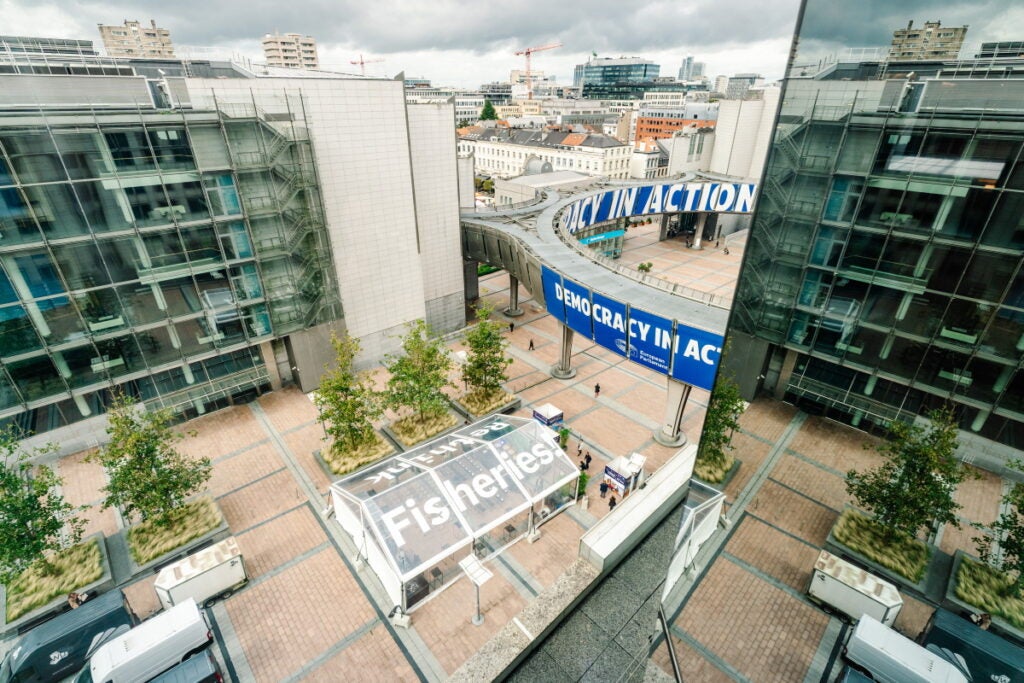October 18, 2024
#RethinkFisheries and EU “Marine not-so protected areas”
The 2024 edition of EU Ocean Week took place in October, just after the EU elections, with new political forces in the European Commission and Parliament emerging in Brussels. The next Von der Leyen Commission (2024-2029) is placing Europe’s economic competitiveness at the centre of its political priorities and this will also be reflected in ocean policies. The mission letter to Mr Kadis, new Commissioner-designate for Fisheries and Oceans, illustrates the focus on how healthy and resilient ecosystems are important to support Europe’s blue economy.
In this context, Oceana, blue NGOs and Patagonia organised a high-level event on 1 October outside the European Parliament aiming to “Rethink Fisheries!”. Low-impact fishers, thinkers, institutions and activists came together to discuss the future of EU fisheries.

The session “Marine not-so protected areas” focused on the progress and state of EU marine protected areas (MPAs) and how they continue to be affected by destructive fishing practices, like bottom trawling. Moderator, Gina Lovett (Patagonia), framed this session in the context of the Ocean campaign launched by Patagonia and supported by many NGOs, that includes a petition calling to end bottom trawling in MPAs.
Vera Coelho from Oceana provided insight into the political obstacles behind this European paradox of allowing destructive fishing inside protected areas (so called ‘paper-parks’), Despite the Commission’s objective in its Marine Action Plan to prohibit bottom trawling inside EU MPAs by 2030, countries still fail to implement EU laws and tackle the root causes of the problem.
Some of them, however, are already showing willingness to address this issue. Jorid Hammersland from the Permanent Representation of Sweden to the EU referred to the proposed Swedish Marine Policy Bill, announced in June 2024, to ban bottom trawling in Swedish MPAs and territorial waters. The political intention of Sweden is primarily to ensure that MPAs are well-protected, first and foremost in areas only fished by the Swedish fleet, and then by engaging in discussions with neighbouring countries to apply the EU’s Common Fisheries Policy.
One of their neighbours can actually provide a good case study of how restricting bottom trawling benefits both ecosystems and fisheries. David Lange – representative of the Danish low-impact fishers producer organisation (FSK-PO), explained how the ban on bottom trawling in the Øresund strait since the 1930s and the resulting low-impact fishing practices in the area have had benefits on fish stock abundance and local fishing communities. Low-impact fishing in MPAs can in some cases help mitigate spatial conflicts at sea with trawlers and David and his fellow fishers are advocating for more of these low-impact fishing areas. David’s insights were also reflected in the photo exhibition organised by Oceana just at the entrance of the venue.
Join us in calling on EU governments to ban bottom trawling in MPAs, by signing the petition : https://action.wemove.eu/sign/2023-05-end-bottom-trawling-petition-EN

